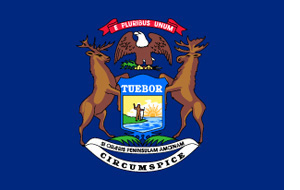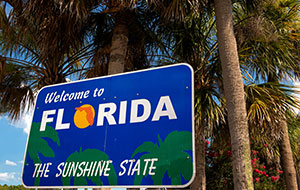Vote Fraud
Vote fraud disenfranchises Americans and poses a serious threat to both the integrity of and confidence in our electoral system. Opponents of measures to prevent vote fraud contend that its occurrence is either nonexistent or so rare as to be insignificant.
Vote fraud is insidious, committed quietly. And once it’s committed, it cannot be undone. Vote fraud contaminates the pool of votes, and if sufficiently extensive, will affect the outcome of an election. As elections determine who exercises political power, there is a motivation among some bad actors to cheat.
Vote fraud is rarely prosecuted for two main reasons. First, it is virtually impossible to identify the fraud before the damage is done as it is primarily committed through absentee and mail-in balloting; second, prosecuting the crime is expensive and is usually a low priority of prosecutors and local law enforcement more concerned with public safety. However, vote fraud is a crime that strikes at the center of our republic.
The principal weakness in our electoral system that fosters vote fraud is inaccurate voter registration rolls. The federal requirement that counties maintain clean, accurate voter rolls has been ignored over the years and actively resisted under the Obama Department of Justice.
Voter rolls should contain only the names of eligible residents of a jurisdiction, but in far too many counties, voter rolls bulge with the names of the dead, those who have moved away, non-citizens, fictional names and voters registered in more than one place.
A Pew Center on the States study in 2012 revealed that:
- Approximately 24 million—one of every eight—voter registrations in the United States were no longer valid or were significantly inaccurate.
- More than 1.8 million deceased individuals were listed as voters.
- Approximately 2.75 million people had registrations in more than one state.
In nearly 200 counties around the nation, more people are registered to vote than the counties’ population of eligible citizens. Examples abound of non-citizens and convicted felons registered to vote. In Philadelphia, an ACRU lawsuit in 2016 revealed thousands of ineligible people on the voter rolls. A sampling of counties in Virginia also found hundreds of illegal registrations, according to a 2016 study by the Public Interest Legal Foundation.
In-person vote fraud, while far more rare than absentee voting, does happen, as shown by the video sting operations of Project Veritas, in which an impersonator at a polling place in the District of Columbia claimed to be then-Attorney General Eric H. Holder, Jr. and easily obtained a ballot. In other Project Veritas videos political operatives openly discussed how to commit vote fraud in Wisconsin and other states.
The institutional Left has focused on preventing common-sense laws to require voters to prove they are who they claim they are, making the ridiculous and unprovable claim that photo ID laws discriminate against racial minorities and the poor. But, vote fraud is accommodated by other means such as extended voting periods and relaxed standards for acquiring absentee or mail-in ballots and not requiring proof of citizenship when registering to vote.
Several reasonable actions should be adopted to guard against vote fraud:
- enforce federal voter roll maintenance laws;
- require photo ID to vote in person;
- require voter ID and signature verification for absentee ballots;
- limit early voting to no more than a week prior to an election;
- require proof of U.S. citizenship;
- encourage more states to participate in cooperative efforts to identify voters registered in more than one state.
Voting is a privilege of citizenship and only legal votes should be counted. The only way to stop vote fraud is to prevent it!
ACRU Commentary
How Black Democrats Stole Votes (from Blacks) in Alabama … and Jeff Sessions Tried to Stop It
It was spun from thin air by Sen. Ted Kennedy and his allies to block the 1986 appointment of Sessions to the federal bench and now resurrected by the NAACP and Democrats.
Election Integrity Matters
Vote fraud is a serious problem that can subvert elections.
Do Illegal Votes Decide Elections?
The voter-registration process in almost all states runs on the honor system.
The Recount Road to Nowhere
The results would have to be reversed in all three states to get Clinton to 270.
Lax Election Enforcement Must Go
Predictably, Democrats are clamoring to abolish the Electoral College, which the Founders created as part of the separation of powers and a hedge against mob rule.
Arizona’s Missing Election Results Prove Early and Mail-In Voting Is a Bad Idea
A quarter of Arizona’s vote had not been counted a full day after the election because of mail-in voting.
News
Michigan Democrat election clerk logs on to alter ballots
Please share this article with the next liberal who tells you there is no voter fraud, but it’s Republicans doing it. A Democratic city clerk in Southfield, Michigan was honored in 2019 by the Michigan State Democratic party with the Levin/Dingell Award. Moving on to 2020, she was arrested and charge with multiple felonies for allegedly altering absentee ballots. Election integrity groups are now calling for a review of all elections she may or may not have fudged.
ACRU lawsuit still making a difference in Broward County
ACRU sued Broward County Election Supervisor Brenda Snipes in 2016 for not maintaining voter rolls, thus opening the door for fraud. She lost her job, and pro-vote integrity Pete Antonacci was appointed by then-Gov. Rick Scott. Florida’s upcoming primary is March 17th, and all (Irish and otherwise) eyes are on Broward. So far, it seems Antonacci has done all the right things to secure the county’s votes in anticipation of the national scrutiny that will be on Broward on November 3.
ACRU lawsuit still making a difference in Starr County, Texas
In 2016, ACRU successfully sued Starr County, Texas for not maintaining voter rolls. It in settlement with ACRU, the county agreed to implement critical action items to remove ineligible voters from its lists. Now, once again, “politiqueras” — campaign activists paid to collect mail-in ballots from people and “encourage” them to vote a certain way—are showing up. Since our lawsuit, Starr County officials are now diligently watching for fraud, and recently found some. They are getting tips and prosecuting offenders. Thumbs up to Starr County.
Vote fraud? There’s an App for that
Vote counting in the Iowa Democrat caucus was a mess. The app built by a company aptly called “Shadow,” created results that were delayed, partially released, partially reversed, and just an epic fail. Shadow is a company created by former Hillary Clinton staffers. Caucus officials are also now refusing to correct errors on worksheets. Lesson? 1. Stay away from vote counting apps created by political operatives. 2. Phone-based voting has the potential to mess up a lot more than one primary.
Liberals succeed in demoralizing their own voters
“Scientific poll” is often an oxymoron for a biased discipline, but trends matter. When a recent Rasmussen poll asked “are American elections fair,” 50% of respondents said yes, down from 57% in 2012. Currently, 72% of Republicans and independents think elections are fair, but only 32% of Democrats. Conclusion? The endless barrage of misinformation by liberals that “there is no voter fraud except when conservatives suppress the vote” is, sadly, having an impact on Democrat voters.
Winning the ID Derby
Last week a bill with enhanced voter integrity provisions passed the GOP-led Kentucky Senate and is now at the state House, where it is likely to pass. Kentucky Democrats are saying two things about the law that make no sense to say at the same time —there is not enough voter fraud to require a photo ID law, and photo ID laws suppress votes (“suppress” is right up there with “purge.”) The new rule has flexibility—even an expired photo ID can be used. No one is sure whether Democrat Governor Andy Beshear will sign the bill as he has been more concerned with restoring voting rights to felons since his inauguration last month.








